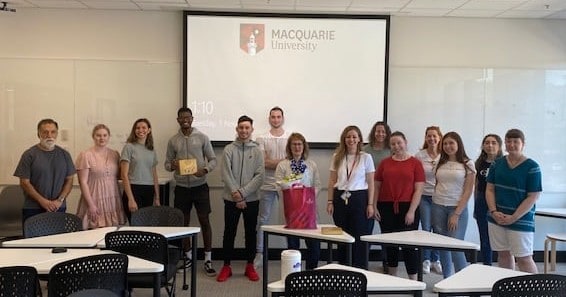The study of Modern Greek at Macquarie University in Sydney has once again come under threat following the release of a discussion paper by the University proposing to discontinue the teaching of number of languages, including Greek, and discontinuing the Diplomas of Languages offered by the Faculty of Arts.
The discussion paper was circulated for initial feedback from interested parties by 17 November 2023 with formal consultation to take place thereafter, including meetings and workshops in order to inform formal responses from the discipline. The response from the wider Greek-Australian community has been immediate with concerns voiced that the proposal to ditch Modern Greek reverses previous commitments given by the University.
What is it about the Greek language?
“Greek, the first great language of Western Civilisation”
(Kenneth Katzner, The Languages of the World)
In the Introduction to the seminal work The Legacy of the Greek Language, Francisco Adrados, a Spanish Hellenist, and Emeritus Professor of Greek Philology, reminds us of the uninterrupted historical continuity and influence of Greek:
"The Greek language became and continues to be, on the one hand, a living linguistic branch that blooms by itself, but on the other hand it has exerted a tremendous influence in various and complex ways on other languages. It helped them to become instruments of thought and literature. In a way, the Greek language lives in all of them and enriches them every day."
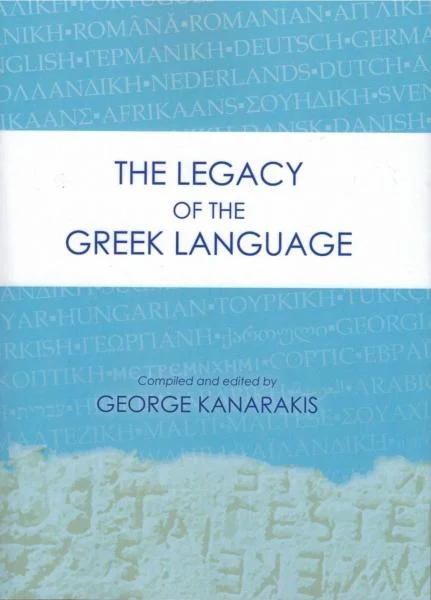
The editor of this impressive volume, Professor George Kanarakis, in his essay notes that the Greek language presents with its oldest and rich written tradition among the languages of Europe, reflected in its steady cohesion and uninterrupted diachronic continuity in the expression of high modes of thought, including philosophy, rhetoric, signs, poetry and logic.
Or, as the French linguists Jean Bouffartigue and Anne-Marie Delrieu, have written Greece is a distant source of our civilisation and is alive in the words we say: "it shapes our language every day".
Macquarie University School for Languages and Linguistics
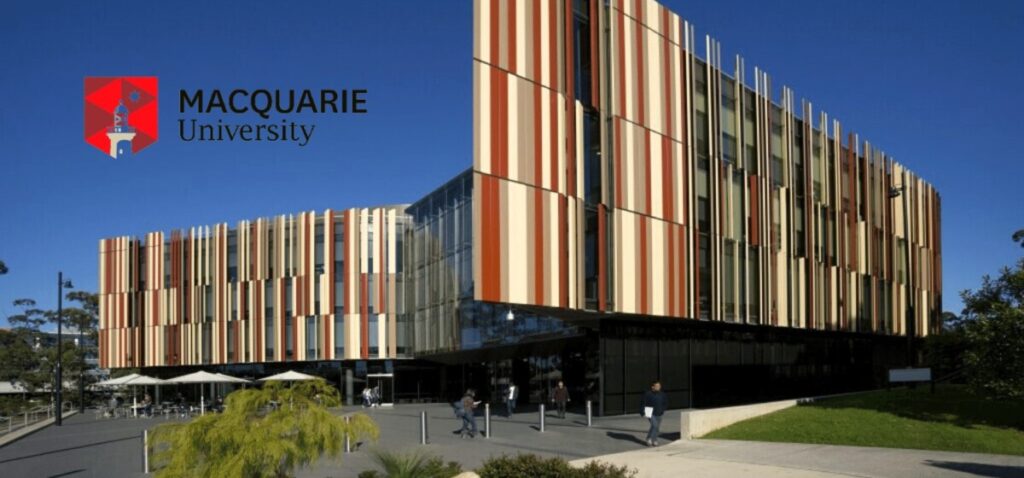
“Language is the key to connecting with people and understanding their cultures in an increasingly globalised world.”
Macquarie University promotes itself as Australia’s leading institution in foreign language learning.
The University on its webpage for languages and logistics asserts that it is in the Top 40 in the world for linguistics and offers the widest range of European languages in NSW. Prospective students are informed that studies in languages and linguistics at Macquarie will prepare them for a range of careers across the globe such as interpreting and translation, teaching, journalism, business or international relations.
The Macquarie University Undergraduate Courses 2024 guide is no less effusive:
“The Modern Greek Studies major will provide you with a sound knowledge of the Greek language and culture, as well as an understanding of the cultural diversity that defines Australia … Having the ability to communicate successfully across cultures, as well as the expertise to apply language and cultural engagement skills in local and global situations, will enhance your career prospects in a range of professions with an international outlook. An understanding of Greek is a useful professional skill that can be especially valuable when combined with a wide range of disciplines, including arts, education, international communication, law, media, medicine, philosophy, politics or science.”
Macquarie Greek Studies Foundation
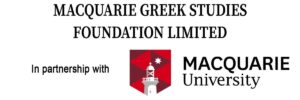 The Macquarie Greek Studies Foundation is a non-profit organisation committed to the advancement, promotion and support of the Greek language, culture and history. Its constitution also mandates that the Foundation establish and maintain funds for the support of academic research and study of the language.
The Macquarie Greek Studies Foundation is a non-profit organisation committed to the advancement, promotion and support of the Greek language, culture and history. Its constitution also mandates that the Foundation establish and maintain funds for the support of academic research and study of the language.
According to its website, the Modern Greek Studies Program of the Department of Media, Communications, Creative Arts, Languages and Literature at Macquarie University was founded by the late Vasili Georgiou in 1988. The Program was established on a permanent basis, however, only after the Greek Studies Foundation provided $375,000 to the University and continues to raise funds.
Global academic collaboration
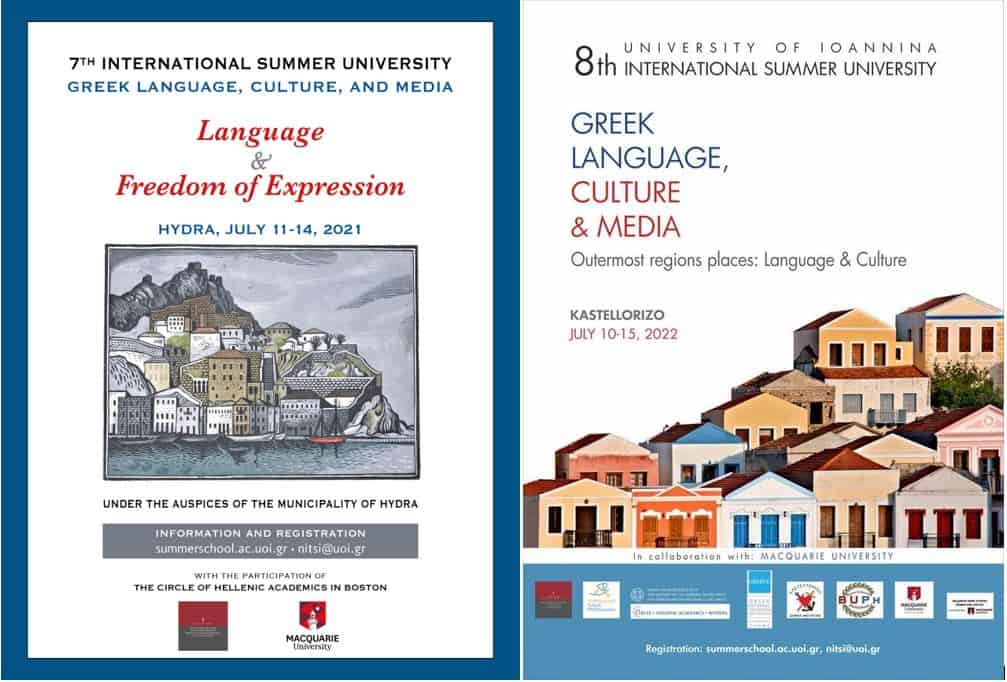
The Modern Greek Studies faculty of Macquarie University has participated in important international research collaborations.
In July 2021, in collaboration with the University of Ioannina, it staged the 7th International Summer University in Hydra with the theme “Language and Freedom of Expression”.
A year later, in July 2022, an international conference on language and culture with the theme Greek Language, Culture, and Media’’ was held on the island of Kastellorizo.
In November 2022 the proceedings from the first conference were published with the launch of the book entitled "Language and Freedom of Expression" held at the Acropolis Museum.
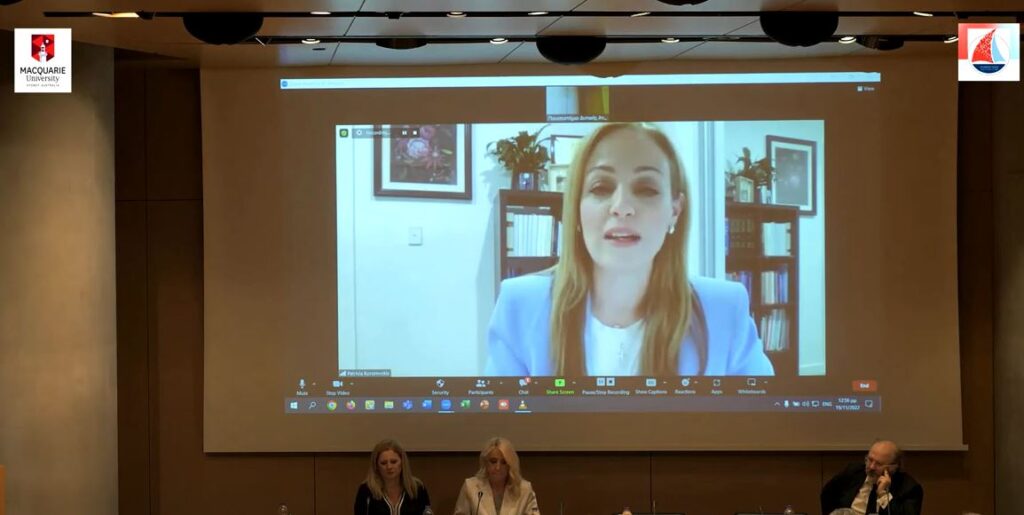
Dr Patricia Koromvokis, Lecturer of the Modern Greek Studies Program Macquarie University, and co-editor of the publication, declared that the volume presents, as its title reveals, the dynamic of the triptych: language, freedom and thought.
The book has been described as the "outcome of an impactful partnership between two continents, two countries, two universities” and emphasised the dialectical relationship between language and expression and, more specifically, the Greek language and the freedom of expression.
At the launch, the former President of the Hellenic Republic, Prokopios Pavlopoulos, stated:
“On the issue of the Greek language it has had the power to propagate Greek culture, and through Greek culture to propagate the European one, on the path to intercultural dialogue, which is very useful for us today.”
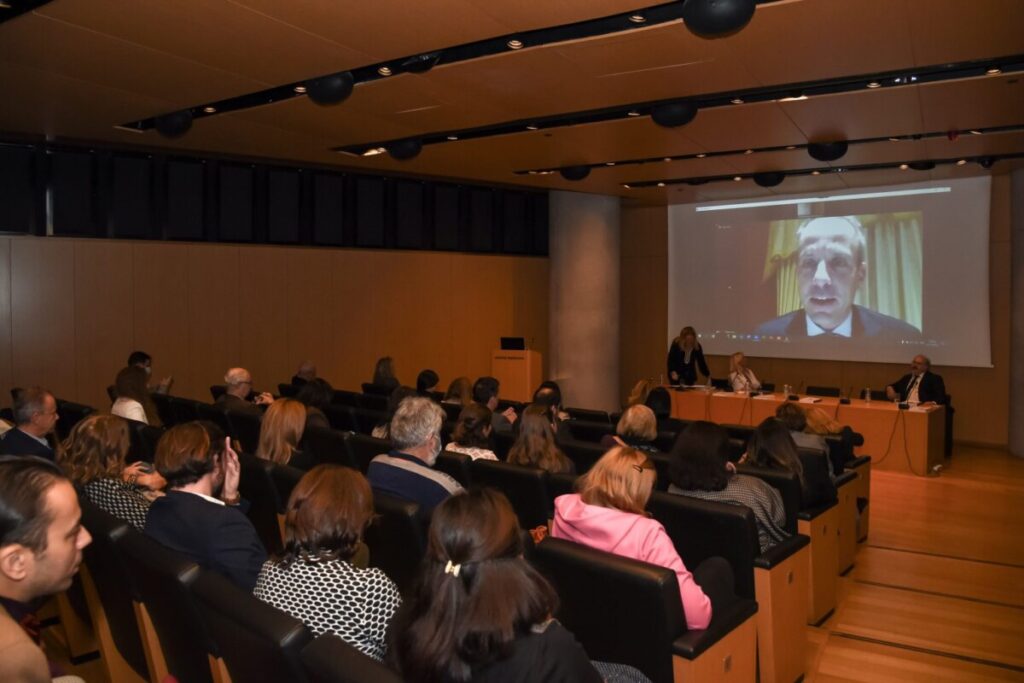
The Consul General of Greece in Sydney, Yannis Mallikourtis, a passionate advocate for fostering the language, appeared via zoom and highlighted the value and the important role of the Modern Greek language in the diaspora and applauded the opportunity to learn Greek at tertiary education institutions., including the modern Greek studies program of Macquarie University.
The international collaboration continues into 2024 with an online conference “Modern practices in the teaching of Greek as a second/foreign language” to be held on 28 January 2024, to coincide with the upcoming celebration of World Greek Language Day.
The demise of Modern Greek at Macquarie University?
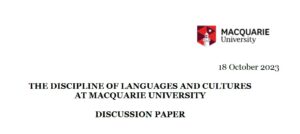 The discussion paper contemplates shifting from a focus on Languages and Cultures to creating a ‘Global Studies’ discipline as part of a broader strategic direction to focus on languages considered to be useful for commerce, trade and governance. At a time of low student enrolments the University contends that fluency in a foreign language is seldom achieved, prompting a need to shift from linguistic proficiency/fluency to cultural proficiency/fluency. This is particularly so given the relative ease of translation between languages through generative AI and machine translation but which fails to bring nuance and depth from the cultural and human context of language.
The discussion paper contemplates shifting from a focus on Languages and Cultures to creating a ‘Global Studies’ discipline as part of a broader strategic direction to focus on languages considered to be useful for commerce, trade and governance. At a time of low student enrolments the University contends that fluency in a foreign language is seldom achieved, prompting a need to shift from linguistic proficiency/fluency to cultural proficiency/fluency. This is particularly so given the relative ease of translation between languages through generative AI and machine translation but which fails to bring nuance and depth from the cultural and human context of language.
According to the discussion paper, teaching the language programs involves “additional complexities” in administration including having to individually test students’ language levels to assess competency and arrange appropriate language course progression. The paper also is surprisingly dismissive of the value of the sustained external funding from the Macquarie Greek Studies Foundation, claiming that the “administrative burden” associated with this relationship outweighs the financial or strategic benefits of the teaching program.
John Ross, the Asia Pacific editor of the Times Higher Education (formerly The Times Higher Education Supplement), has reported that this approach is alarming. He quotes John Hajek, President of the Languages and Cultures Network for Australian Universities, who describes this as a “wrong-headed” response to AI-induced superficiality.
According to Hajek, language and culture are deeply intertwined and Macquarie University, a recognised national leader in language teaching and research, really needs to increase the language proficiency of their students rather than moving away from it. He also poured scorn on the claim that linguistic fluency is now unachievable.
The discussion paper circulated by the University is also seemingly at odds with its own recent statements and claims regarding the teaching of foreign languages, and in particular Modern Greek.
Back in 2021, the then Executive Dean of the Faculty of Arts at Macquarie University, Professor Martina Möllering, praised the “collaborative approach” together with “support from the Greek community,” in restoring Modern Greek to the Bachelor of Arts major schedule.
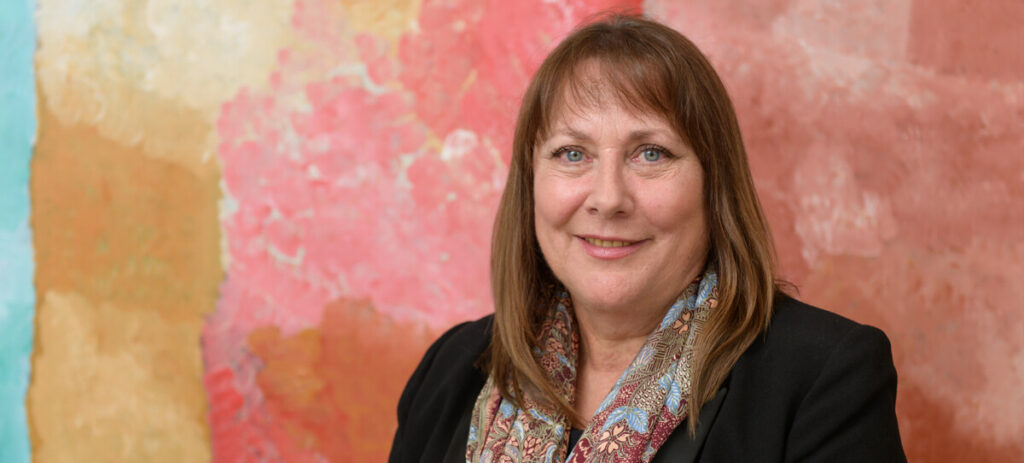
The highly-regarded Executive Dean declared:
“Macquarie University acknowledges that Modern Greek is a language with a very strong base in the Australian community which has substantial interest in Macquarie’s role as a provider of language education, and this has fostered significant partnerships with community groups over time. The Faculty of Arts at Macquarie University, which encompasses the Macquarie School of Education, is in a unique position to provide teacher training in the language, and the ongoing work of scholars in Modern Greek Studies has led to philanthropic and research income.”
Reactions
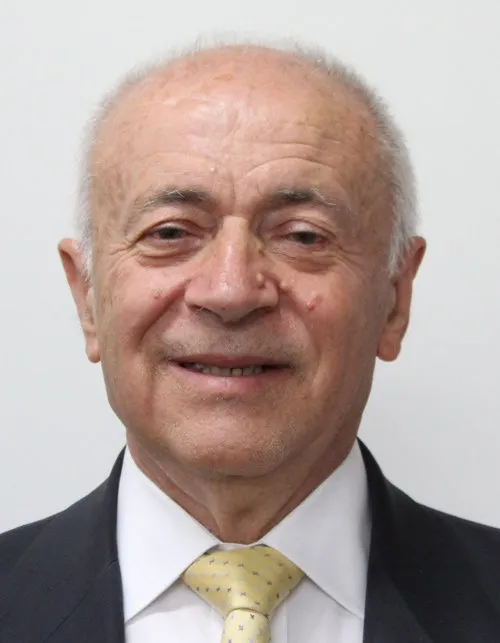
Theo Premetis, the President of the Macquarie Greek Studies Foundation, has written to supporters advising that the Foundation is deeply concerned and urging that they write to the University to maintain the teaching of Modern Greek at Macquarie.
The Foundation argues that Australia is a multicultural nation with a significant Greek-speaking population and, therefore, maintaining a program in Modem Greek promotes the inclusion of diverse linguistic traditions which enhances the University’s reputation as an institution that values the contributions of all ethnic groups to Australian society.
Moreover, Macquarie University has special significance within the Greek Australian community and is considered an important centre of learning. At the same time, Modem Greek aligns with the university’s interest in advancing global studies and international collaboration, with the faculty having established strong partnerships with Greek universities and being pivotal in organising international academic conferences.
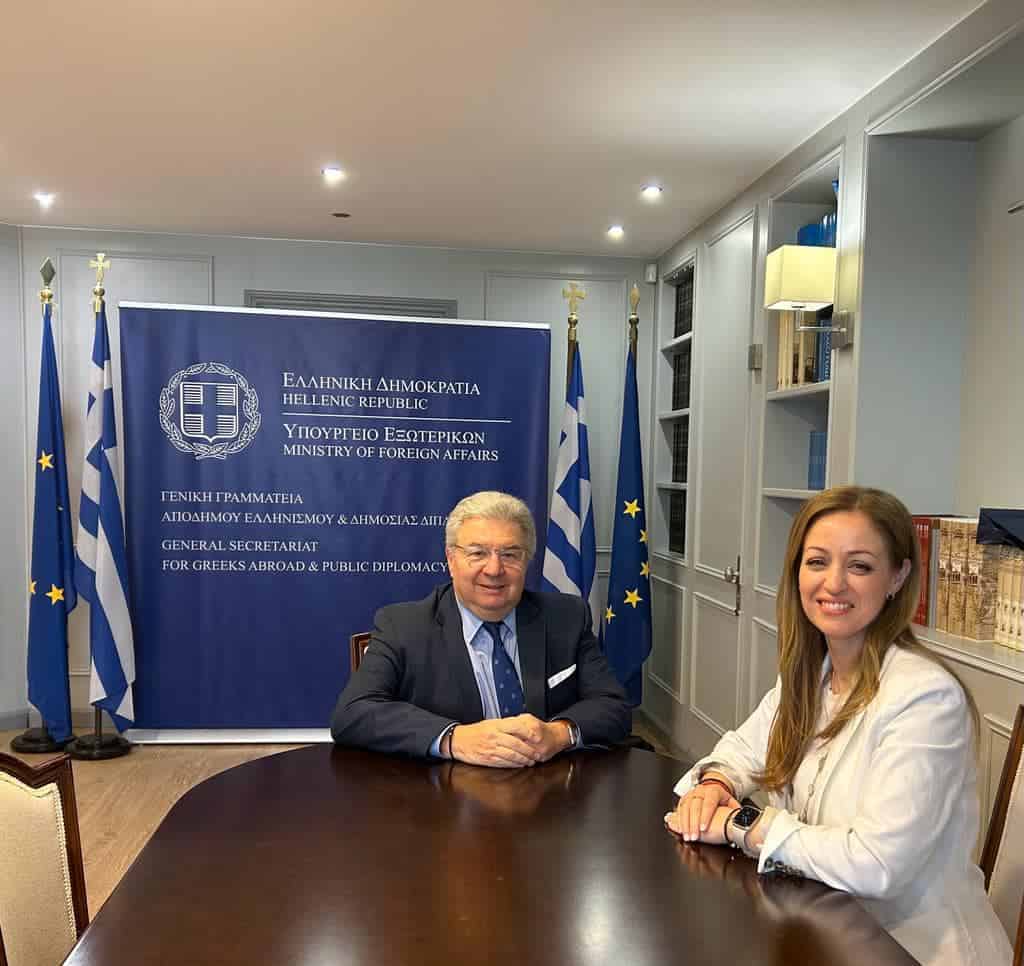
Greece’s Secretary General for Greeks Abroad and Public Diplomacy, John Chrysoulakis, has sent a letter to Macquarie University in Sydney in strong support of the continuation of its Μodern Greek Studies Program.
At the 2022 launch of the "Language and Freedom of Expression" volume the Secretary General had reiterated the importance of maintaining the Greek language for Hellenism in Australia:
“We deeply love the Greek language, and the Greek culture and we have set as our goal the continuous spread, promotion, cultivation and recognition of its greatness. The Greek language is a living organism, that has existed and has been continuously spoken for 40 centuries. It has existed as a written language for 25 centuries and is evolving, being enriched, and adapting. It follows the flow of circumstances and history."
Online petition
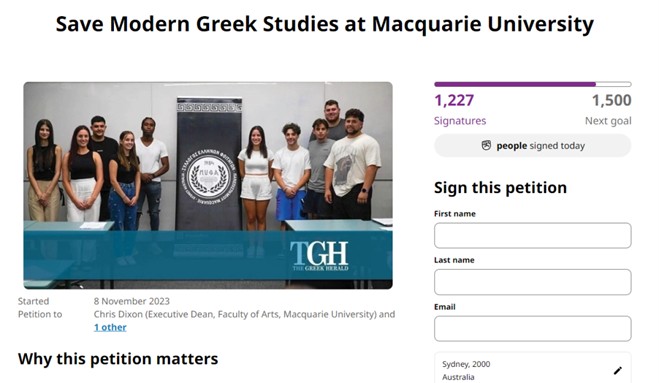
The Greek Herald newspaper, in partnership with the Macquarie University Greek Association, has initiated a petition to rally community support to save the Modern Greek Studies program at Macquarie University and is urging all supporters of Modern Greek Studies – Greek Australians, academics, students, and allies alike – to sign the petition and make their voices heard.
As the petition states, Modern Greek Studies is more than just a language course; it is a gateway to understanding Greek history, culture, and contributions to the world. By ceasing this program, Macquarie University would be denying current and future generations the opportunity to explore the nuances of Greek literature, art, philosophy, and the profound impact Greek civilisation has had on the development of Western society.
And as the famous Greek Noble Prize winning poet Giorgos Seferis declared during his acceptance speech in 1963, the Greek language has never ceased to be spoken.
The final word must go to the late Robert Browning, former chair of the Society for the Promotion of Hellenic Studies and Emeritus Professor of Greek, and the author of Medieval and Modern Greek (1969), who wrote:
'The Greek language has enjoyed a continuous tradition to the present day. If one wants to learn Greek, it does not really matter whether one begins with Homer, with Plato, with the New Testament, with the Romance of Digenis Akritas, or with Kazantzakis. The effort required to tackle earlier or later stages, once the student is firmly grounded in one stage, is not great. And educated Greek speakers have always had present in their minds the whole of the language up to their own time, drawn upon it, alluded to it, and consciously modified it. It is this intellectual continuity which makes the study of Greek both rewarding and difficult."
That sentiment, although expressed more than 50 years ago, continues to resonate today.
The study of the Modern Greek language is both rewarding and difficult, but it is also essential. Our tertiary institutions should not shy away from such intellectual endeavours.
George Vardas is the Arts and Culture Editor and has signed the petition.

